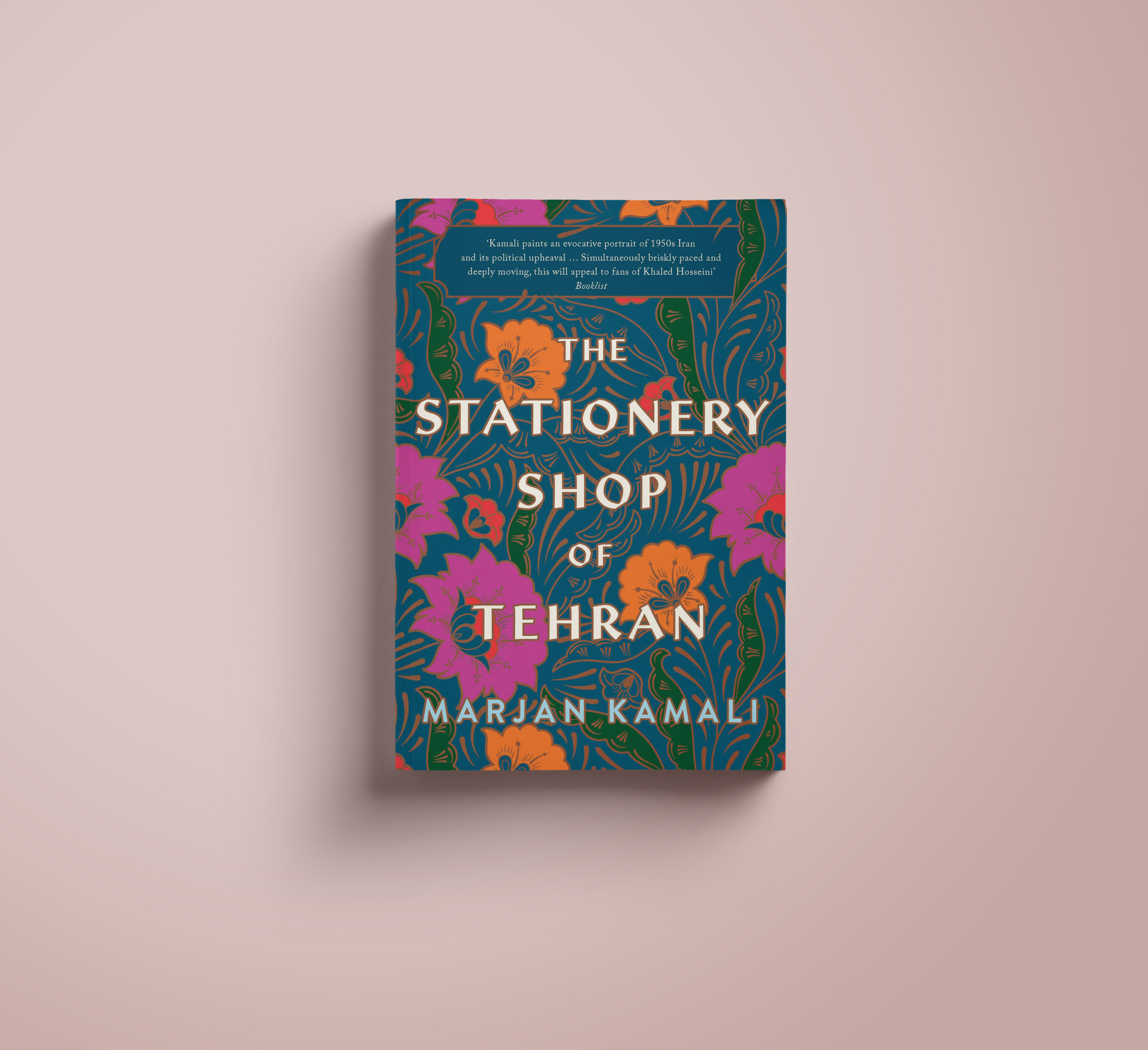No products in the cart.
Review of The Stationery Shop of Tehran by Marjan Kamali
“The past was always there, lurking in the corners, winking at you when you thought you’d moved on, hanging on to your organs from the inside.”
There is the misconception that only non-fiction books can support women’s empowerment. That in order for us to progress, we must look at the facts and figures, or at the very least, a biography. Well, this book will prove any skeptics wrong. The Stationery Shop of Tehran is the epitome of fiction for change. It covers a whole host of topics, from the role of women, to race and religion, and politics. Kamali paints a beautiful picture of what life was like for Roya, a young girl who escapes to the warm arms of a stationery store every Tuesday after high school. There, she meets the political activist Bahman, and her world changes.
A story full of sweeping romance, but with an important message.
It can be easy to think of The Stationery Shop of Tehran as a simple love story. For that’s what it is. But through the love story, we learn of the power of a woman who experiences the very best and the very worst of what life has to offer. She is always brought back to the time where, in the stationery shop, amongst the fountain pens, writing paper, and ink bottles, she feels at home.
A story of growth and femininity.
Reminiscent of the awkward teenage years, and how we grow and change, becoming who we truly are, it is a reminder of all that we have been through and that we are an accumulation of our past experiences. And that, ultimately, we are in charge of our own destiny. Although the world around us is often fraught, we all deserve to have a place in that world, unimpeded by our gender, sexual orientation, religion, or whatever else.
The exploration of cultures other than our own.
The story is initially set in 1953, during a brief period of peace in Tehran, where new reforms mean more rights for women. As part of a progressive household, where women are seen as equals, Roya’s upbringing is often different from those around her. It makes us realize that there was a time when women were treated as less-than, and that some people still believe this. This fills me with pride for how far we’ve come, but also makes me recognize that there’s more to do.
Women’s empowerment is often seen in fiction and overlooked.
At first glance, you might simply enjoy the love story between Roya and Bahman, but this book gets under your skin and makes you think about all the things you don’t know. It’s a cultural experience as well as a romantic one. For those of you who aren’t into non-fiction, this book is the perfect way to dip your toes into women’s empowerment in fiction. No longer are women the damsels in distress; they have the power to save themselves.
Share on facebook
Share on twitter
Share on linkedin



